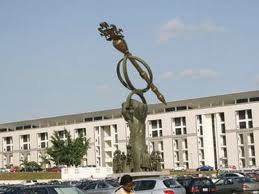 Mkpoikana Udoma
Mkpoikana Udoma
Port Harcourt — The Port Harcourt Chamber of Commerce, Industry, Mines, and Agriculture, PHCCIMA, has called on the Rivers State Government to aggressively recover trapped and under-declared assets, estimating that such efforts could unlock over N500 billion in additional revenue to support the implementation of the 2025 budget.
In its detailed analysis of the N1.188trillion “Budget of Inclusive Growth and Development,” PHCCIMA acknowledged the ambition and prudence displayed in the government’s fiscal planning but cautioned that inflation and naira depreciation had significantly eroded the real value of the budget.
Adjusting for the 32.15% average inflation rate recorded in 2024 and the naira’s 90% depreciation, the detailed analysis contained in a statement signed by PHCCIMA President, Dr. Chinyere Nwoga, estimated the net present value of the budget at approximately N700 billion.
“This stark reality underscores the need for the Rivers State Government to explore every available opportunity to unlock trapped resources and recover undeclared revenues. These measures are critical for ensuring that the budget’s ambitious goals are achieved,” stated Dr. Nwoga, in a statement prepared by the Chamber’s Economic Research and General-Purpose Committee.
PHCCIMA highlighted the importance of recovering under-declared and undeclared revenues, estimating that such efforts could inject over N500 billion into the state’s coffers.
“The Rivers State Government could significantly bolster its financial capacity by aggressively pursuing these trapped assets,” Dr. Nwoga noted.
The Chamber also recommended expanding tax collection efforts to areas outside the state, particularly in high-revenue hubs such as Lagos and Abuja, where significant revenue streams remain untapped. “Expanding the upcountry tax collections drive, especially in Lagos and Abuja, could generate substantial additional revenue for the state,” the statement added.
To further safeguard the state’s financial stability, PHCCIMA called for the re-enactment of a Rivers State Statutory Savings Account to ensure that assets do not lose value due to economic fluctuations.
“It is important that the state creates buffers to absorb foreign exchange risks and fluctuating FAAC allocations,” Dr. Nwoga emphasized.
The Chamber lauded the government’s allocation of N678 billion to capital expenditure, which constitutes over 50% of the total budget and outpaces operating expenditure by roughly 30%.
PHCCIMA described this emphasis as a commendable strategy to invest in infrastructure and assets whose future value could increase significantly.
“The government’s focus on capital expenditure is very commendable, as evidenced by the ratio analysis. Investing in capital assets whose future value may double by 2026 is a wise approach, especially given the economic pressures,” PHCCIMA stated.
PHCCIMA also applauded the budget’s allocations of N31billion to agriculture and youth empowerment and N15.6 billion to social development, noting that these measures provide significant opportunities for inclusive growth.
However, the Chamber advised the government to establish a credible database for youth and women to ensure effective disbursement and monitoring of funds.
“There may be a need to update or recreate a strategic state-wide enumeration targeted at Rivers State’s population,” PHCCIMA suggested, adding that the government could leverage counterpart multilateral funds to raise at least 50% of the required N20billion for youth and social development initiatives.
With N98billion allocated to the health sector, PHCCIMA recommended that the government engage consultants to assist the Rivers State University Teaching Hospital in boosting its internal revenue generation and blocking financial leakages. “This will help reduce the burden on government spending and improve the health sector’s overall efficiency,” the Chamber stated.
The Chamber also commended the government’s plan to explore counterparty funding with the Universal Basic Education program to support education but cautioned that cash flow challenges and financial reconciliation backlogs at the federal level could limit the success of this strategy.
While PHCCIMA commended the Rivers State Government for avoiding excessive reliance on debt and focusing instead on internally generated revenue, statutory allocations, and refunds, it emphasized that implementation remains the most critical aspect of the budget.
“This is a well-researched and carefully planned budget, but its success depends on effective implementation, transparency, and stakeholder collaboration. The Rivers State Government must go beyond planning to deliver measurable outcomes,” Dr. Nwoga concluded.



